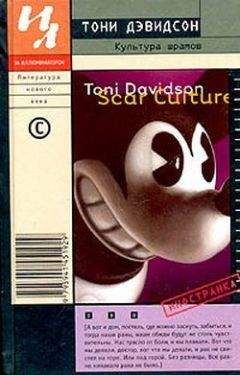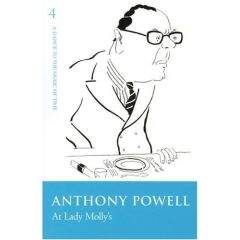Anthony Powell - A Buyers Market
“Where are you off to?” this person suddenly called across the street.
The voice, grating on the morning air, was somewhat accusing in tone. I saw, as a kind of instantaneous revelation, that it was Uncle Giles who stood on the corner in front of the public-house. He seemed undecided which road to take. It was plain that, a minute or two earlier, he had emerged from one of the three main centres of nocturnal activity in the immediate neighbourhood, represented by the garage, the sandwich bar, and the block of flats of dubious repute. There was not a shred of evidence pointing to one of these starting points in preference to another, though other alternatives seemed excluded by his position. I crossed the road.
“Just up from the country,” he said, gruffly.
“By car?”
“By car? Yes, of course.”
“Is it a new one?”
“Yes,” said Uncle Giles. “It’s a new one.”
He spoke as if he had only just thought of that aspect of the vehicle, supposedly his property, that was stated to have brought him to London. One of those pauses followed for which my uncle’s conversation was noted within the family circle. I explained that I was returning from a dance, a half-truth that seemed to cover whatever information was required, then and there, to define my circumstances in as compact and easily intelligible a form as possible. Uncle Giles was not practised in following any narrative at all involved in its nature. His mind was inclined to stray back to his own affairs if a story’s duration was of anything but the briefest. My words proved redundant, however. He was not in the least interested.
“I am here on business,” he said. “I don’t want to waste a lot of time. Never was keen on remaining too long in London. Your hand is never out of your pocket.”
“Where are you staying?”
My uncle thought for a moment.
“Bayswater,” he said, slowly and rather thoughtfully.
I must have looked surprised at finding him so comparatively far afield from his pied-à-terre, because Uncle Giles added:
“I mean, of course, that Bayswater is where I am going to stay — at the Ufford, as usual. There is a lot to be said for a place where they know you. Get some civility. At the moment I am on my way to my club, only round the corner.”
“My rooms are just by here.”
“Where?” he asked, suspiciously.
“Opposite.”
“Can’t you find anywhere better to live — I mean it’s rather a disreputable part of the world, isn’t it?”
As if in confirmation of my uncle’s misgivings, a prostitute, small, almost a dwarf, with a stumpy umbrella tucked under her arm, came hurrying home, late off her beat — tap-tap-tap-tap-tap-tap-tap-tap — along the pavement, her extravagant heels making a noise like a woodpecker attacking a tree. She wore a kind of felt helmet pulled low over her face, which looked exceedingly bad-tempered. Some instinct must have told her that neither my uncle nor I were to be regarded in the circumstances as potential clients; for altering her expression no more than to bare a fang at the side of her mouth like an angry animal, she sped along the street at a furious pace — tap-tap-tap-tap-tap-tap — and up the steps of the entrance to the flats, when she disappeared from sight. Uncle Giles averted his eyes. He still showed no sign of wishing to move from the spot, almost as if he feared even the smallest change of posture might in some unforeseen manner prejudice the veil of secrecy that so utterly cloaked his immediate point of departure.
“I have been with friends in Surrey,” he said grudgingly, as if the admission were unwillingly drawn from him. “It’s a favourite county of mine. Lovely in the autumn. I’m connected with the paper business now.”
I hoped sincerely that this connection took, as was probable, remote and esoteric form, and that he was not associated with some normal branch of the industry with which my own firm might be expected to open an account. However, he showed no desire to pursue this matter of his new employment. Instead, he produced from his overcoat pocket a handful of documents, looking like company reports, and glanced swiftly through them. I thought he was going to begin discussing the Trust — by now the Trust remained practically the only unsevered link between himself and his relations — in spite of the earliness of the hour. If his original idea had been to make the Trust subject of comment, he must have changed his mind, finding these memoranda, if such they were, in some way wanting, because he replaced the papers carefully in order and stuffed them back into his coat.
“Tell your father to try and get some San Pedro Warehouses Deferred,” he said, shortly. “I have had reliable advice about them.”
“I’ll say you said so.”
“Do you always stay up as late as this?”
“No — it was a specially good party.”
I could see from my uncle’s face that not only did he not accept this as an excuse, but that he had also chosen to consider the words as intended deliberately to disconcert him.
“Take a bit of advice from one who has knocked about the world for a good many years,” he said. “Don’t get in the habit of sitting up till all hours. It never did anyone any good.”
“I’ll bear it in mind.”
“Parents well?”
“Very well.”
“I’ve been having trouble with my teeth.”
“I’m sorry.”
“Well, I must be off. Good-bye to you.”
He made a stiff gesture, rather as if motioning someone away from him, and moved off suddenly in the direction of Hertford Street, striding along very serious, with his umbrella shouldered, as if once more at the head of his troops, drums beating and colours flying, as the column, conceded all honours of war, marched out of the capitulated town. Just as I opened the door of my house, he turned to wave. I raised my hand in return. Within, the bedroom remained unaltered, just as it had appeared when I had set out for the Walpole-Wilsons’, the suit I had worn the day before hanging dejectedly over the back of a chair. While I undressed I reflected on the difficulty of believing in the existence of certain human beings, my uncle among them, even in the face of unquestionable evidence — indications sometimes even wanting in the case of persons for some reason more substantial to the mind — that each had dreams and desires like other men. Was it possible to take Uncle Giles seriously? And yet he was, no doubt, serious enough to himself. If a clue to that problem could be found, other mysteries of life might be revealed. I was still pondering Uncle Giles and his ways when I dropped into an uneasy sleep.
3
I USED TO IMAGINE life divided into separate compartments, consisting, for example, of such dual abstractions as pleasure and pain, love and hate, friendship and enmity; and more material classifications like work and play: a profession or calling being, according to that concept — one that seemed, at least on the surface, unequivocally assumed by persons so
dissimilar from one another as Widmerpool and Archie Gilbert, something entirely different from “spare time.” That illusion, as such a point of view was, in due course, to appear — was closely related to another belief: that existence fans out indefinitely into new areas of experience, and that almost every additional acquaintance offers some supplementary world with its own hazards and enchantments. As time goes on, of course, these supposedly different worlds, in fact, draw closer, if not to each other, then to some pattern common to all; so that, at last, diversity between them, if in truth existent, seems to be almost imperceptible except in a few crude and exterior ways: unthinkable, as formerly appeared, any single consummation of cause and effect. In other words, nearly all the inhabitants of these outwardly disconnected empires turn out at last to be tenaciously inter-related; love and hate, friendship and enmity, too, becoming themselves much less clearly defined, more often than not showing signs of possessing characteristics that could claim, to say the least, not a little in common; while work and play merge indistinguishably into a complex tissue of pleasure and tedium.
All the same, although still far from appreciating many of the finer points of Mrs. Andriadis’s party — for there were, of course, finer points to be appreciated in retrospect — and, on the whole, no less ignorant of what the elements there present had consisted, I was at the same time more than half aware that such latitudes are entered by a door through which there is, in a sense, no return. The lack of ceremony that had attended our arrival, and the fact of being so much in the dark as to the terms upon which the party was being given, had been both, in themselves, a trifle embarrassing; but, looking back on the occasion, armed with later knowledge of individual affiliations among the guests, there is no reason to suppose that mere awareness of everyone’s identity would have been calculated to promote any greater feeling of ease: if anything, rather the reverse. The impact of entertainments given by people like Mrs. Andriadis, as I learnt in due course, depends upon rapidly changing personal relationships; so that to be apprised suddenly of the almost infinite complication of such associations — if any such omniscience could, by some magical means, have been imparted — without being oneself, even at a distance, at all involved, might have been a positive handicap, perhaps a humiliating one, to enjoyment.
To begin with, there was the unanswered question of Stringham’s entanglement with Mrs. Andriadis herself. I did not know how long in duration of time the affair had already extended, nor how seriously it was to be regarded. Their connection, on his part at least, seemed no more than a whim: a fancy for an older woman, of which, for example, in a Latin country nothing whatever would be thought. On the other hand, Mrs. Andriadis herself’ evidently accepted the fact that, so far as things went, she was fairly deeply concerned. I thought of the casual adventure with the woman in Nairobi that he had described to me, and of the days when he and Peter Templer had been accustomed to discuss “girls” together at school.
I could now recognise in Stringham’s attitude a kind of reticence, never apparent at the time when such talks had taken place. This reticence, when I thought it over, was not in what Stringham said, or did not say, so much as in what, I suppose, he felt; and, when he used to sweep aside objections raised by myself to Templer’s often cavalier treatment of the subject, I saw — at this later date — his attitude was assumed to conceal a lack of confidence at least comparable with my own. I did not, of course, come to these conclusions immediately. They were largely the result of similar talks pursued later over a long period with Barnby, of whom Mr. Deacon, congenitally unappreciative in that sphere, used to say: “I can stand almost anything from Barnby except his untidiness and generalisations about women.” However, personally I used to enjoy Barnby’s pronouncements on the subject of feminine psychology, and, when I came to know him well, we used to have endless discussions on that matter.
This — as Barnby himself liked to believe — almost scientific approach to the subject of “women” was in complete contrast to Peter Templer’s, and, I think, to Stringham’s too, both of whom were incurious regarding questions of theory. Templer, certainly, would have viewed these relatively objective investigations as fearful waste of time. In a different context, the antithesis of approach could be illustrated by quoting a remark of Stringham’s made a dozen or more years later, when we met during the war. “You know, Nick,” he said, “I used to think all that was necessary to fire a rifle was to get your eye, sights, and target in line, and press the trigger. Now I find the Army have written a whole book about it.” Both he and Templer would have felt a similar superfluity attached to these digressions with Barnby, with whom, as it happened, my first words exchanged led, as if logically, to a preliminary examination of the subject: to be followed, I must admit, by a lifetime of debate on the same theme.
The circumstances of our initial encounter to some extent explain this early emphasis. It had been the end of August, or beginning of September, in days when that desolate season of late summer had fallen like a pall on excavated streets, over which the fumes of tar hung heavy in used-up air, echoing to the sound of electric drills. After two or three weeks away from London, there was nothing to be enjoyed in anticipation except an invitation to spend a week-end at Hinton with the Walpole-Wilsons: a visit arranged months ahead, and still comparatively distant, so it seemed, in point of time. Every soul appeared to be away. A sense of isolation, at least when out of the office, had become oppressive, and I began to feel myself a kind of hermit, threading his way eternally through deserted and sultry streets, never again to know a friend. It was in this state of mind that I found myself wondering whether some alleviation of solitude could be provided by “looking up” Mr. Deacon, as he had suggested at the coffee-stall; although it had to be admitted that I felt no particular desire to see him after the closing scenes of the party, when his behaviour had struck me as intolerable. However, there appeared to exist no other single acquaintance remaining within a familiar orbit, and the Walpole-Wilson week-end still seemed lost in the future. As a consequence of prolonged, indeed wholly disproportionate, speculation on the matter, I set out one afternoon, after work, for the address Mr. Deacon had scrawled on an envelope.
Charlotte Street, as it stretches northward towards Fitzroy Square, retains a certain unprincipled integrity of character, though its tributaries reach out to the east, where, in Tottenham Court Road, structural anomalies pass all bounds of reason, and west, into a nondescript ocean of bricks and mortar from which hospitals, tenements and warehouses gloomily manifest themselves in shapeless bulk above mean shops. Mr. Deacon’s “place” was situated in a narrow by-street in this westerly direction: an alleyway, not easy to find, of modest eighteenth-century — perhaps even late seventeenth-century — houses, of a kind still to be seen in London, though growing rarer, the fronts of some turned to commercial purposes, others bearing the brass plate of dentist or midwife. Here and there a dusty creeper trailed from window to window. Those that remained private dwellings had three or four bells, one above the other, set beside the door at a height from the ground effectively removed from children’s runaway rings. Mr. Deacon’s premises stood between a French polisher’s and the offices of the Vox Populi Press. It was a sordid spot, though one from which a certain implication of expectancy was to be derived. Indeed, the façade was not unlike that row of shops that form a backcloth for the harlequinade; and, as I approached the window, I was almost prepared for Mr. Deacon, with mask and spangles and magic wand, suddenly to pirouette along the pavement, tapping, with disastrous consequence, all the passers-by.
However, the shop was shut. Through the plate glass, obscured in watery depths, dark green like the interior of an aquarium’s compartments, Victorian work-tables, papier-mâché trays, Staffordshire figures, and a varnished scrap screen — upon the sombrely coloured montage of which could faintly be discerned shiny versions of Bubbles and For He Had Spoken Lightly Of A Woman’s Name—swam gently into further aqueous recesses that eddied back into yet more remote alcoves of the double room: additional subterranean grottoes, hidden from view, in which, like a grubby naiad, Gypsy Jones, as described so vividly by Mr. Deacon, was accustomed, from time to time, to sleep, or at least to recline, beneath the monotonous, conventionalised arabesques of rare, if dilapidated, Oriental draperies. For some reason, the thought roused a faint sense of desire. The exoticism of the place as a bedroom was undeniable. I had to ring the bell of the side door twice before anyone answered the summons. Then, after a long pause, the door was half opened by a young man in shirt-sleeves, carrying a dustpan and brush.




